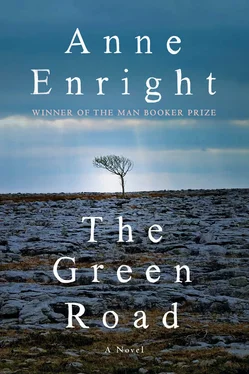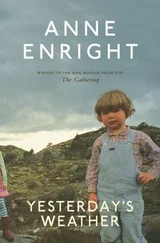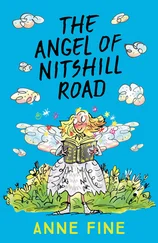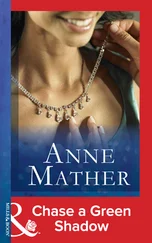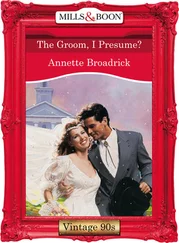‘Fifteen?’
She said, ‘Active bites. I have five fading. I can, you know, sense them. I find each one, with my eyes closed. I find it, and then I breathe slowly, letting it go. Letting the itch go.’
There was silence.
‘And how is that working out for you?’
‘I thought you’d never ask,’ she said. And then, ‘How was the road?’
‘Good. Fine.’
‘And what did you see?’
‘You know.’
‘Did you have some meetings?’
‘I did.’
‘And were these meetings held under a convenient tree?’
‘They were,’ he said.
He asked her did she ever, when she was a child, break the top off a fuchsia and suck the nectar out, just where the skirts of the flower began.
‘Oh dear me,’ she said. ‘I don’t think so. No.’
He noticed the bowl again, when they went out that evening. This time it was inside the house, on the hall floor. He was going to mention it to Ibrahim but it was a Thursday and Ibrahim was anxious to be gone. He let the driver go too. Emmet could not get back into the Land Cruiser, he was tired of Hassan driving like a bastard, shaving past some old woman so the pot wobbled on her head. So many women unkilled by so many white four-wheel-drives in the various countries where he had been driven by men like Hassan, a little more crazy, or less.
‘Mind the pot!’
Thousands of miles on dust roads, and gravel roads, and potholed tarmac: roads that turned into rivers, or forest, or crowded marketplaces; roads you drove beside because the road was so bad.
Total kill, he told Alice, as they walked along the river, one goat, a few chickens, something that flew like a pheasant and shattered the windscreen in Bangladesh, and many small bumps that felt, when you thought about it, a bit soft. The biggest was a tiny antelope in the Sudan, suspended mid leap for an endless moment in front of them, before a rear hoof caught the bonnet, and it was upended under their front fender.
‘Bam! Back broken.’
They were walking over to a party, slapping themselves idly, or waving the mosquitoes away with a bit of palm leaf.
‘Oh no,’ she said.
‘Somebody got dinner,’ he said.
‘For sure.’
He didn’t mention the small child in Mozambique, who cracked off the side of the car, sailed in an arc, and seemed to bounce off the ground, he was up so fast and running — also smiling — the little bag of peanuts he was trying to sell still held high. Bit of a limp. They wanted to stop, but the driver threw some coins out the window and put the foot down. And:
‘No, no!’ said the nice aid workers. ‘Stop the car!’
‘So what was it like?’ said Alice.
‘What?’
‘The Sudan.’
People always wanted to know about the Sudan.
Two thousand people sucking water from the same patch of mud. Thirty water pumps stuck at the airport, and every piece of paper shuffled and lost by the bastards in Khartoum. What did she want to hear?
‘There was a lot of paperwork,’ he said.
He wanted to tell her that starvation does not smell sweet, the way death smells sweet. There’s a chemical edge to it, like walking past the hairdresser’s at home.
Alice took his arm in the silence.
The streets were very quiet: a few scooters, the distant sound of trucks coming up from the riverside. Through open doorways, families could be seen, murmuring and eating or sitting against the wall. There was no metal cutlery to bang or clatter, the children did not shout, and no baby was crying, anywhere. From an open window, they heard the pop-pop-popping sound of a paraffin lamp that was newly lit. The woman tending the flame wore a green headscarf, elaborately wrapped, and the light, as it grew, seemed to pull her face out of its own beautiful shadows. Emmet could hear the squeak of the little screw, as they passed.
The party was a desultory thing; with one bottle pretending to be Johnnie Walker and a fetid punch. The next morning they woke to the sound of the muezzin and the relief of a house that was empty of everyone except themselves. They spent the morning catching up on work then packed their togs for an afternoon swim in the tiny pool at the Lebanese hotel. Emmet heated the lunch that Ibrahim had left for them. He was just about to serve up, when he heard Alice open the front door.
‘Come on!’ she said.
There was a noise on the tiles like a scattering of small beads and Emmet thought something had spilt — her necklace, perhaps, had broken. But when she came into the dining room her necklace was intact, and the small noise continued.
‘Lunch,’ he said, a little foolishly, with the pot of stew — it was goat — held in both hands. As he set it down on the low table, he saw the dog.
It was the whiteness of the dog that disturbed him first and, after that, the wan look in its good eye.
‘Oh Christ,’ he said.
‘What?’
‘Things are bad enough.’
‘No they’re not. Are they?’
‘I mean in Africa. Things are bad enough in Africa , without bringing a dog into the house.’
‘It’s only a dog,’ she said.
‘Eat your lunch,’ he said, ladling the stew on to her plate. But Alice took the plate and scraped half of it into the bowl — which he now realised was the dog’s bowl — on the floor. It had been the dog’s bowl for some time.
‘Eat your lunch,’ he said again.
‘What are you, my mother?’
Emmet took the pot back out to the kitchen and came back in and sat down and started to eat in what he hoped was a companionable silence. The stew was excellent. The dog liked it, too. Alice said, ‘Good boy, Mitch. Good boy.’
The dog ate, then clicked across the tiles to offer its nervous love to Alice, feinting and fawning as her hand found the top of its head.
‘Poor guy,’ she said. ‘There you go.’
A whine of pure emotion escaped the dog as it plonked its chin on Alice’s thigh, and looked up into her eyes. Alice ate with one hand, while the other hand scratched under and around its head until the dog collapsed on to the floor and rolled over, paws dangling, back legs agape and her hand worked its way down its ribs and on to the hairless belly.
Every piece of shit in town was stuck to the dog’s undercarriage, a fact that did not seem to bother Alice despite the hand-washing campaign she ran for the new mothers of Ségou. Because hand washing — there was no doubt about it — saves lives. On the plus side, Emmet decided, the dog did not have rabies. And if he did, Emmet was up to date on his shots.
He said: ‘You know, Ibrahim has first dibs on the leftovers. Usually.’
Alice paused and then scratched on.
‘Poor Mitch,’ she said.
He said, ‘It’s just a pain, when they start to pilfer. The staff.’
She looked up. ‘Ib is stealing stuff?’
‘That’s not what I said. No.’
But she was back to cooing at the dog. And Emmet needed to think, so he just shut up for a while.
They walked over to the hotel. On the last stretch of road, Emmet saw a woman afflicted with tiny lumps. They covered her from head to toe. Even her eyelids were lumpy, even the insides of her ears. Emmet had seen her before, and she always greeted him with the sweet, sad smile of a woman who is happy you have not thrown a stone at her. It was hard to know what the problem was. The lumps were under the skin, so they weren’t warts, and there was no sign of infection so you couldn’t — even in your own mind — dose her with antibiotics and sleep contented. It was a parasite, perhaps, though not one he had ever encountered. It was a syndrome. An autoimmune thing. It was a biblical plague of boils. It was something genetic, because poverty wasn’t enough of a curse, clearly, you had to have your own extra, personal curse, just to make you feel special.
Читать дальше
